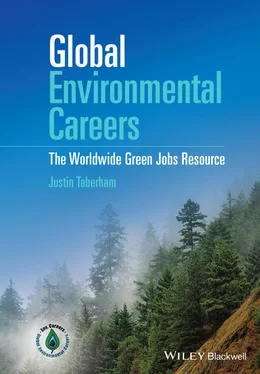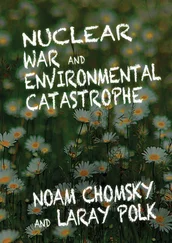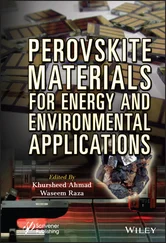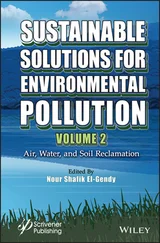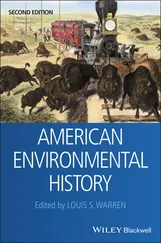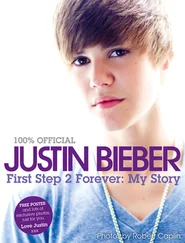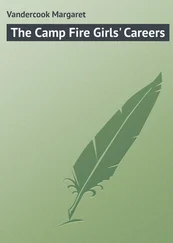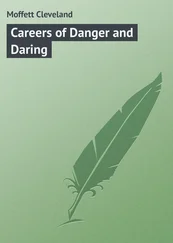Justin Taberham - Global Environmental Careers
Здесь есть возможность читать онлайн «Justin Taberham - Global Environmental Careers» — ознакомительный отрывок электронной книги совершенно бесплатно, а после прочтения отрывка купить полную версию. В некоторых случаях можно слушать аудио, скачать через торрент в формате fb2 и присутствует краткое содержание. Жанр: unrecognised, на английском языке. Описание произведения, (предисловие) а так же отзывы посетителей доступны на портале библиотеки ЛибКат.
- Название:Global Environmental Careers
- Автор:
- Жанр:
- Год:неизвестен
- ISBN:нет данных
- Рейтинг книги:3 / 5. Голосов: 1
-
Избранное:Добавить в избранное
- Отзывы:
-
Ваша оценка:
- 60
- 1
- 2
- 3
- 4
- 5
Global Environmental Careers: краткое содержание, описание и аннотация
Предлагаем к чтению аннотацию, описание, краткое содержание или предисловие (зависит от того, что написал сам автор книги «Global Environmental Careers»). Если вы не нашли необходимую информацию о книге — напишите в комментариях, мы постараемся отыскать её.
Global Environmental Careers – The Worldwide Green Jobs Resource
Kevin Doyle,
Lisa Yee-Litzenberg,
Laura Thorne,
Sharmila Singh,
Carol L. McClelland, PhD, Green Careers for Dummies
Global Environmental Careers — читать онлайн ознакомительный отрывок
Ниже представлен текст книги, разбитый по страницам. Система сохранения места последней прочитанной страницы, позволяет с удобством читать онлайн бесплатно книгу «Global Environmental Careers», без необходимости каждый раз заново искать на чём Вы остановились. Поставьте закладку, и сможете в любой момент перейти на страницу, на которой закончили чтение.
Интервал:
Закладка:
Personal Profile
Catriona Horey, Leadership & Life Coach and Nature & Climate Change Coach, UK
I grew up gently immersed in the environmental world. My father, Geoffrey Matthews, was one of the founding fathers of the Ramsar Convention on Wetlands and spent more than 30 years as Director of Research and Conservation at WWT (Wildfowl & Wetlands Trust), headquartered in Slimbridge, where he worked closely alongside Sir Peter Scott. My mother, Mary Matthews (née Evans), also worked at WWT, conducting research into swan behaviour over a decade.
I grew up in the Gloucestershire countryside and, as a child and teenager, would write letters to MPs about environmental issues, was a member of green charities and raised money for environmental initiatives.
My interest in the environment continued into my late teens and early 20s. I collected data for a GTZ project on fire management and prevention in the grasslands and forests of Mongolia, as part of a Raleigh International expedition. My degree in Human Sciences at the University of Oxford had biological and ecological elements, and I helped at a sustainable watershed development organisation in China.
Then, I somewhat changed direction: I spent more than a decade focusing on humans! After my Master's in Humanitarian Assistance in Bochum, Germany, I worked to help transform the performance of non‐profits and social enterprises and leaders in social innovation, both in London and New York. I then retrained as a certified leadership and life coach, working with leaders in social innovation and women looking to redefine their professional and personal priorities.
For the last few years, perhaps in part having become a mother and with climate change higher on the world’s agenda, it feels like I'm starting to ‘come home’ or ‘full circle’ back to green issues. I now offer coaching outdoors in Battersea Park, London, as part of my packages and have co‐led nature‐based workshops there too. I participated in a fabulous coaching circle with Climate Change Coaches and now offer coaching to people who want to explore their relationship with climate change so they can move from scarcity, overwhelm, anger and/or grief to a place of resonant action. I have also co‐delivered climate change mindset workshops. And I co‐host a podcast that explores the power of the natural world to inform and inspire with Elizabeth Wainwright, a writer, a coach and consultant and an elected Green District Councillor. I’m excited to train further and dive more deeply into nature‐based and nature‐inspired work alongside my leadership and life coaching.
Top Tips
1 It's never too early or too late to get involved in environmental or green issues.
2 Reconnect with times in your life where you felt really on purpose, empowered and in action and, from that place of resonance, consider what you want your legacy on this earth to be. Follow your intuition – even if your path might not be straight.
3 Be creative with the skills, strengths and passions you already possess and think about how you might apply them with a focus on the environment. Remember the green agenda is increasingly being woven into different industries and roles so there are many new and diverse ways to get involved.
4 Search out training, mentoring and/or coaching opportunities to help develop yourself, whatever stage in your career you are. Be curious, explore what could work for you and, for more expensive offerings, don't be afraid to ask if there are scholarships available.
5 Be bold and creative with your connections and network. My career has been built on meeting people through ‘informational interviews’ and referrals. Explore LinkedIn and your wider network and invite people you admire to in‐person or virtual coffees to learn more about their work and find out which organisations they might recommend to you and people they might suggest you speak to – indeed they may have an opportunity available themselves or offer to refer you! And then pay‐it‐back by sharing your wisdom and connections with those coming after you. And enjoy your explorations!
Source: Catriona Horey, Leadership & Life Coach and Nature & Climate Change Coach, UK. www.withcatriona.com. © John Wiley & Sons.
1.11 Reality Check
It is worth having a reality check in terms of working in the environment sector. There are many ways that you can benefit the environment, even if you don’t work in the sector. Many people volunteer outside work for NGOs or make donations to contribute to green efforts.
The excellent 2014 blog article ‘5 ways to make a big difference in any career’ by Benjamin Todd (2014) on the 80,000 Hours website notes:
At 80,000 Hours, we’re focused on finding the very best opportunities for you to do good with your career. We’re worried that sometimes this continuous focus can be demoralising. After all, it’s hard to find the best opportunities. Moreover, we’re worried that sometimes our members lose sight of the fact that you can make a big difference in any career .
A 2015 BBC article bluntly notes ‘it could well be effectively better to become a very rich banker and give away your money than go and work for an NGO in Kenya.’
A common route taken to a green career is being an environmental consultant, but as EarthHow’ (2021) highlighted in the article ‘The Good, the Bad and the Ugly for Environmental Consulting Careers’:
After graduation, you’ll probably want to land a job where you can make a positive difference to the environment. The startling truth is that ‘making a difference’ is not the job description of an environment consultant. Your very existence impacts the environment by documenting local conditions prior to human impacts, evaluating human impacts, or cleaning up human impacts. You are a scientist or engineer collecting data, developing a solution and writing reports. You enforce environmental regulations. There are rare opportunities for you to change the world.
Within the environment sector, pay is generally not high, especially within NGOs. However, competition for roles is very intense for most roles.
The importance of certain personal qualities has already been mentioned in the book introduction. There are some personal qualities that are essential for someone seeking to develop an environmental career. As for many roles, there are skills that you should be able to demonstrate – teamwork, negotiation, languages, and good time keeping. One word commonly mentioned is ‘stickability’. You need perseverance to do well in a sector which is very popular and where roles can be poorly paid.
There is a major stumbling block for those wanting to begin a career in the sector – the vicious circle of ‘no experience no job, no job no work experience’. There are a number of sectors where you now have to pay for work experience to enable you to gain professional development and transferable skills. This vicious circle can be a thorny problem unless you have the resources to afford ‘paid for work experience’.
There has been a backlash against this practice and against the offering of unpaid work experiences which are in practice using free workers to undertake tasks that would normally be paid for. There is no easy answer to this challenge. I carried out a lot of volunteer work whilst at school and I was fortunate enough to have a paid work experience at university. The earlier book section on Volunteering noted the pitfalls of volunteering and internships.
In terms of training, there are many options for increasing your qualifications and skillsets. Some training providers are costly (and some of these courses are worth the cost), but there are many courses delivered by local, national, and online providers, which have a low cost or are free.
Читать дальшеИнтервал:
Закладка:
Похожие книги на «Global Environmental Careers»
Представляем Вашему вниманию похожие книги на «Global Environmental Careers» списком для выбора. Мы отобрали схожую по названию и смыслу литературу в надежде предоставить читателям больше вариантов отыскать новые, интересные, ещё непрочитанные произведения.
Обсуждение, отзывы о книге «Global Environmental Careers» и просто собственные мнения читателей. Оставьте ваши комментарии, напишите, что Вы думаете о произведении, его смысле или главных героях. Укажите что конкретно понравилось, а что нет, и почему Вы так считаете.
